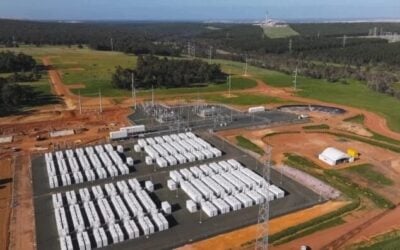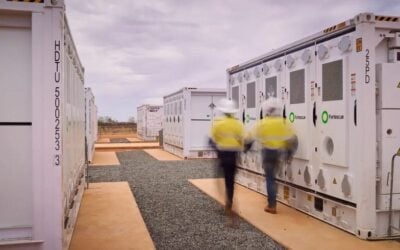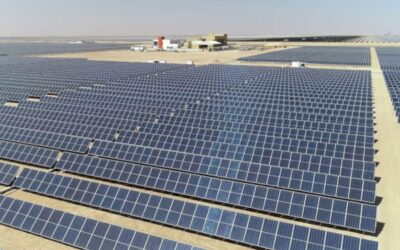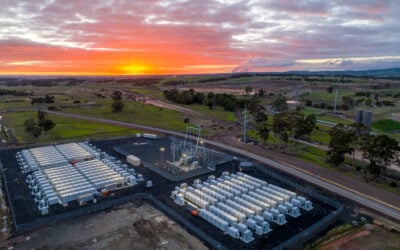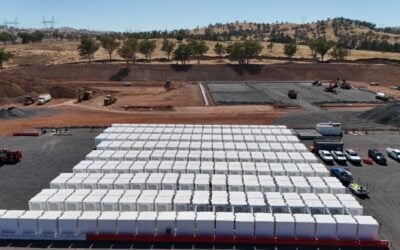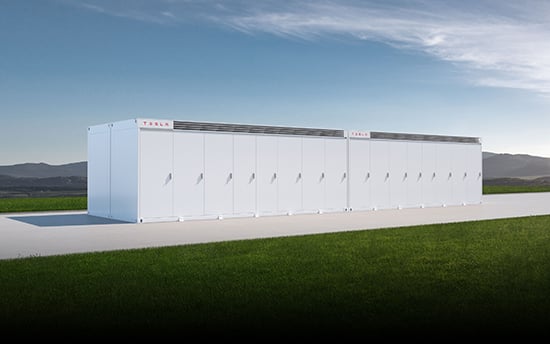
Infrastructure service provider Lumea has opened up a process to tender for a 300MW grid-connected battery project near Melbourne, Australia, intending to build the project without government funding.
A selective Expression of Interest (EOI) process opened up yesterday for the battery energy storage system (BESS) which will be connected to Deer Park Energy Hub, a transmission infrastructure site on the western outskirts of metropolitan Melbourne, in the state of Victoria.
The system will operate in the National Electricity Market (NEM), which interconnects five of the main jurisdictions of Australia and has operated as a wholesale market since the late 1990s. As such it offers opportunities for batteries and other energy assets to earn revenues from providing grid services, coupled with the pressing need and growing trend for the addition of renewable energy resources.
Through the EOI, Lumea will create a process for selecting between applicants from renewable generation and wider energy sector companies. The company said in a press release that the EOI will gauge market interest in the project and will be used to determine the optimal size and duration of storage of the BESS.
Try Premium for just $1
- Full premium access for the first month at only $1
- Converts to an annual rate after 30 days unless cancelled
- Cancel anytime during the trial period
Premium Benefits
- Expert industry analysis and interviews
- Digital access to PV Tech Power journal
- Exclusive event discounts
Or get the full Premium subscription right away
Or continue reading this article for free
The company will also examine what sort of future opportunities could open up in the NEM — for example there are currently plans to launch a wider suite of frequency control ancillary services (FCAS) market opportunities than the already-lucrative opportunities that currently exist. Meanwhile the BESS will also enable the optimisation of renewable energy assets, storing power for dispatch when most needed, as well as providing stability through grid services.
Deer Park is an important asset for Melbourne’s electricity supply and is owned and operated by TransGrid, one of Australia’s main high voltage transmission network operators, responsible for 13,000km high voltage lines, cables and substations in New South Wales (NSW) and the Australian Capital Territory (ACT). TransGrid was granted a transmission license from the Deer Park site in 2017.
TransGrid launched Lumea as its commercial project arm in May this year, tasked with capturing the value of providing services to Australia’s renewables industry, and at the time of the launch already held a portfolio of over 9,000MW of renewable energy projects in operation or under construction. Lumea also provides secure power to large commercial, industrial and infrastructure users of electricity as well as working in the energy storage, transport and essential services sectors.
“Lumea is looking to demonstrate that batteries can be fully funded through the market. We know that the energy transition requires innovative pathways to reach its renewable targets,” Lumea head of infrastructure Nigel Buchanan said.
“It is critical we also find new avenues to fund these projects through the market to allow the most effective use of all funding sources for lower cost energy.”
In October last year, Energy-Storage.news reported that TransGrid would trial the use of a 50MW / 75MWh grid-scale BESS, using Tesla’s Megapack grid-scale storage solution product at one of its substations in Wallgrove, Western Sydney, NSW, to provide services including synthetic inertia and frequency response. Lumea said yesterday that it is now taking on that project and it is on track for completion in October. Unlike the private funding that it is hoping to achieve at the Deer Park Battery, Wallgrove project is receiving AU$21.5 million (US$15.35 million) from federal and state government to support its expected AU$61 million total cost.

